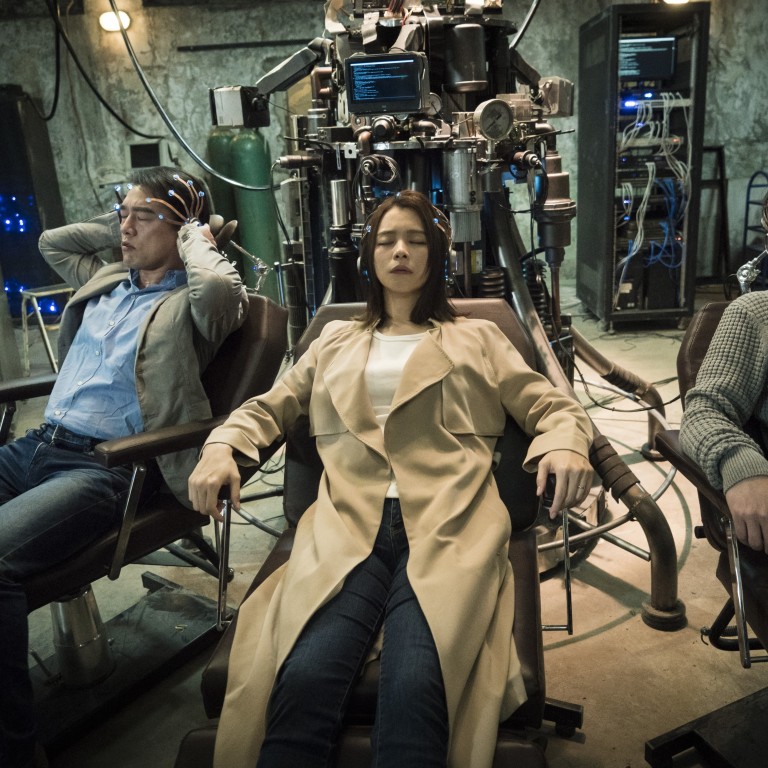
HBO Asia’s Dream Raider: The Matrix meets Inception in Taiwan
- The eight-part sci-fi series explores the possibilities of mind control and manipulating people’s subconscious thoughts
- Scientists, criminals and police officers unite to thwart a vengeful mind-miner from hacking into the dreams of innocent victims
Available on HBO Go and HBO (new episodes on Sundays at 9pm), Dream Raider borrows from Total Recall, The Matrix and Inception to consider the possibilities of barging in on the slumbers of the unsuspecting, reading their brainwaves and ultimately manipulating their dreams.
And given that the aims of such intrusions will probably never comprise more than mass mind control, brainwashing or commercial avarice, the perpetrators, especially in works of fiction, are always going to be villains.
Here, an awkward bunch of scientists, criminals and police officers join unlikely forces to thwart a scarred, vengeful, mind-mining orchestrator intent on hacking into the oddly steampunk-inspired dream-raiding machine to control the dreamscapes of innocent victims across Taiwan, driving them to suicide, violence or insanity. And who can resist a siren call to doom when it emanates from a sword-slinging femme fatale squeezed into a red PVC suit?
But as machine inventor Tianli Cheng (Jason Wang), detective Li Xiao (Weber Yang) and noetic science researcher Dr Anya Cheng (Ellen Wu) realise, human consciousness, prone to fragmented delusions, cannot always be relied upon and a spot of reverse neural engineering is sometimes necessary to avert a psychological short circuit.
When you’re up against a dodgy corporation, a mysterious Super Mind and the beckoning Abyss of Consciousness, who you gonna call? The Dream Raider Special Task Force, obviously.
In Connected on Netflix, Latif Nasser presents science at its most accessible
Latif Nasser is what many might call a nerd. With his Art Garfunkel hair, owlish spectacles and wide-eyed wonder at the world around him, the journalist and TED-talker is the face of six-part Netflix documentary series Connected, which begins with its own take on sinister manipulation – not intracranial, but related to that modern-day scourge, surveillance.
It’s not all threatening, however: facial-recognition technology (predictably a military creation) is also promoting closer human-animal understanding in ways that benefit our increasingly burdened planet. All that comes in part one – and the enthusiastic, engaging Nasser, presenting popular science at its most accessible, is just warming up.

That battle royal features in the instalment titled “Poop”, in which Nasser finds that faeces, rather than something to be sniffed at, constitutes “a lens through which to see the world”, disclosing all manner of information about us, from the historical health of our guts to the potentially depressive effect of Brexit on Londoners’ mental health.
Inquisitive, believe-it-or-not-style series have seldom been so catholic or intriguing. Connected: it’s the sh*t.

